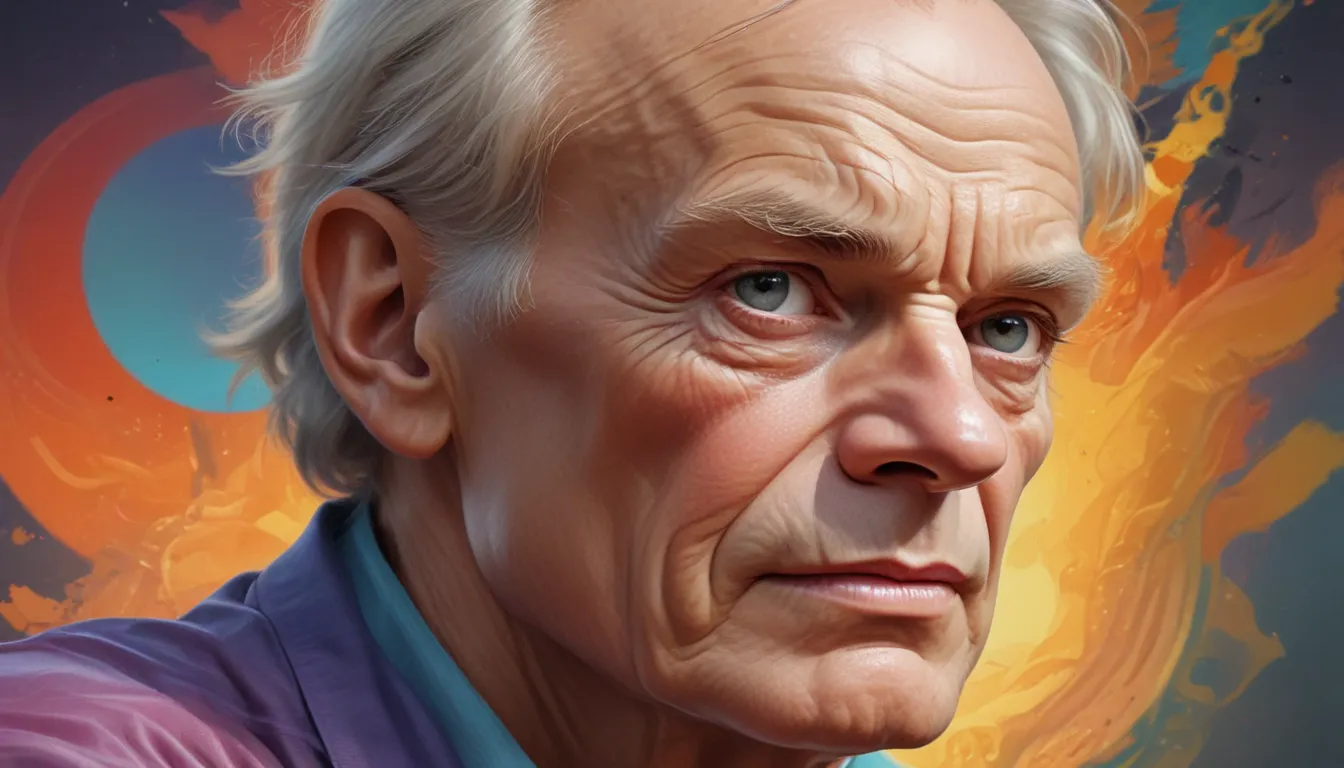The images in our articles may not match the content exactly. They are used to grab your attention, not to show the exact details in the text. The images complement the text but do not replace it.
Welcome to a captivating exploration of the life and work of Paul Feyerabend, a maverick philosopher who defied traditional norms and reshaped the landscape of philosophy of science. Born in Austria in 1924, Feyerabend’s unconventional ideas and revolutionary arguments have earned him a reputation as a polarizing figure in the world of philosophy.
An Introduction to Paul Feyerabend
Paul Feyerabend was a rebellious thinker who dared to challenge the established methods and rules of scientific inquiry, inspiring us to question norms and embrace diverse approaches to knowledge. His controversial views continue to ignite debates, emphasizing the importance of innovation through interdisciplinary thinking.
The Life and Background of Paul Feyerabend
- Birth: Born on January 13, 1924, in Vienna, Austria, Feyerabend’s early experiences in Europe profoundly influenced his philosophical development.
- Multilingual Scholar: Fluent in German, English, French, and Italian, Feyerabend’s linguistic abilities allowed him to engage with a diverse range of philosophical and scientific communities.
- Educational Journey: Initially studying physics and astronomy at the University of Vienna, Feyerabend’s foundation in the sciences greatly influenced his later philosophical perspectives.
- Influential Figures: Influenced by Karl Popper’s philosophy of science, Feyerabend later diverged from some of Popper’s theories, shaping his own unique philosophical stance.
The Philosophies of Paul Feyerabend
- Advocacy for Epistemological Anarchism: Feyerabend supported epistemological anarchism, challenging the idea of a universal scientific method and promoting multiple methodologies tailored to specific scientific problems.
- Controversial Publication: The release of “Against Method” in 1975 sparked debates within the scientific community, criticizing conventional scientific methods in favor of a more open and flexible approach to inquiry.
- Emphasis on Interdisciplinarity: Recognizing the value of interdisciplinary collaboration, Feyerabend believed that breaking down disciplinary boundaries could lead to groundbreaking discoveries.
- Critique of Dogmatism: Throughout his career, Feyerabend vehemently criticized the dogmatic enforcement of scientific theories, advocating for a more inclusive approach to knowledge.
- Global Intellectual Exchange: Feyerabend’s extensive travels to various countries allowed him to engage with different academic and cultural communities, influencing his diverse perspectives.
The Legacy of Paul Feyerabend
- Impact on Sociology and Anthropology: Feyerabend’s philosophies extended beyond science, profoundly influencing the fields of sociology and anthropology.
- Charismatic Personality: Renowned for his wit and sense of humor, Feyerabend’s engaging persona captivated audiences, adding a unique dimension to his intellectual discussions.
- Continuing Influence: Even after his passing in 1994, Feyerabend’s ideas continue to spark philosophical debates, shaping our understanding of knowledge and inquiry.
Unveiling the Enigmatic Paul Feyerabend: Frequently Asked Questions
Who was Paul Feyerabend?
Paul Feyerabend was an Austrian philosopher of science known for his radical views on the philosophy and methodology of science.
What were Feyerabend’s main ideas?
Feyerabend argued for methodological pluralism, challenging the notion of a single scientific method and emphasizing cultural and historical influences on scientific theories.
What is Feyerabend’s concept of “epistemological anarchism”?
Epistemological anarchism posits that there are no set rules for acquiring scientific knowledge, advocating for the freedom to adopt diverse methods and theories.
What impact did Feyerabend have on the philosophy of science?
Feyerabend’s ideas sparked intense debates, offering valuable critiques of dogmatic scientific approaches and prompting reflections on scientific knowledge.
What is Feyerabend’s most famous book?
Feyerabend’s renowned work is “Against Method: Outline of an Anarchistic Theory of Knowledge,” challenging traditional concepts of scientific methodology.
How has Feyerabend’s legacy influenced contemporary philosophy?
Feyerabend’s provocative ideas remain influential in philosophy of science, stimulating discussions on scientific plurality, methodology, and societal implications of science.
Conclusion
In conclusion, Paul Feyerabend’s unorthodox philosophy of science and his advocacy for methodological pluralism have left an indelible mark on the field. His fearless quest to challenge established paradigms and embrace intellectual freedom continues to inspire critical reflections on the nature of knowledge and inquiry. Whether you find yourself in agreement with Feyerabend’s ideas or engaged in debate, his contributions serve as a catalyst for innovation and interdisciplinary thinking in the realm of philosophy and science.
Explore the realm of thought-provoking philosophers like Karl Popper and Immanuel Kant, who have reshaped our understanding of knowledge and inquiry. Each intellectual giant offers a unique perspective, challenging us to push the boundaries of conventional wisdom and embrace diverse viewpoints in our pursuit of truth.
Remember, the journey of intellectual discovery is a never-ending quest, fueled by curiosity, collaboration, and a willingness to question the status quo. Embrace the spirit of inquiry, and dare to challenge norms as you navigate the fascinating world of philosophy and science.






